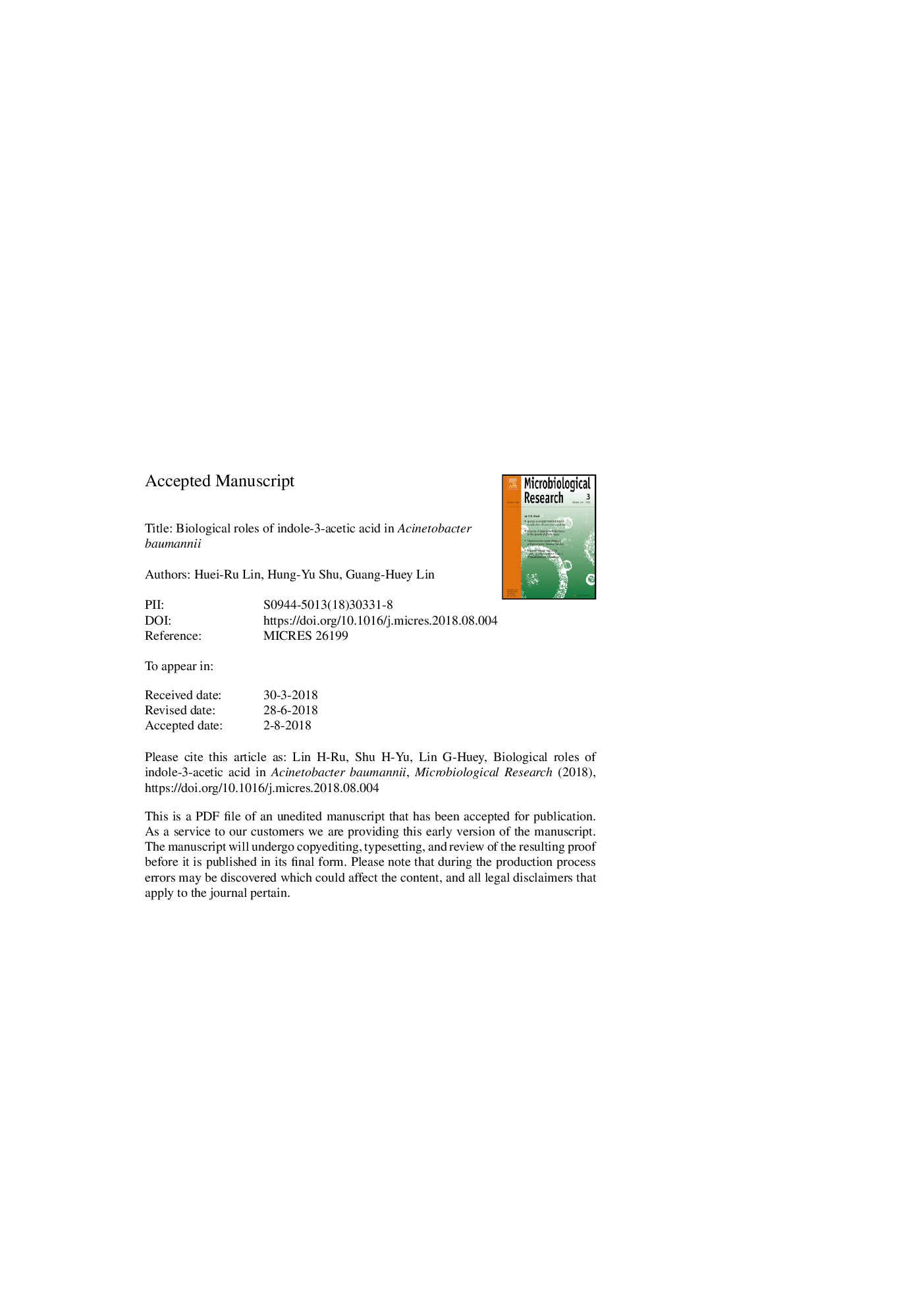| کد مقاله | کد نشریه | سال انتشار | مقاله انگلیسی | نسخه تمام متن |
|---|---|---|---|---|
| 8422577 | 1545959 | 2018 | 48 صفحه PDF | دانلود رایگان |
عنوان انگلیسی مقاله ISI
Biological roles of indole-3-acetic acid in Acinetobacter baumannii
دانلود مقاله + سفارش ترجمه
دانلود مقاله ISI انگلیسی
رایگان برای ایرانیان
کلمات کلیدی
موضوعات مرتبط
علوم زیستی و بیوفناوری
بیوشیمی، ژنتیک و زیست شناسی مولکولی
بیوتکنولوژی یا زیستفناوری
پیش نمایش صفحه اول مقاله

چکیده انگلیسی
Indole-3-acetic acid (IAA) is an important plant hormone, and many types of bacteria interact with plants by producing or degrading IAA in the rhizosphere. The iac (indole-3-acetic acid catabolism) gene locus in Acinetobacter baumannii ATCC19606 was previously associated with IAA degradative capability, and in this study, transcriptome analysis results derived from A. baumannii cultured with IAA showed that the expression of catechol-degrading and phenylacetate-degrading genes was elevated, indicating that IAA is likely degraded through these pathways. This study further found that A. baumannii also has IAA productive capability, primarily involving the ipdC gene, and transcriptome and spent media analysis of wild-type and mutant cultures grown in minimal media revealed that A. baumannii likely produces IAA through the indole-3-pyruvic acid (IPyA) pathway. Exogenously applied IAA improved tolerance against oxidative stress in wild-type A. baumannii and iacA mutants unable to degrade IAA, but not in ipdC mutants incapable of producing IAA, suggesting that endogenous IAA is important for stress tolerance. Meanwhile, ipdC mutants also had reduced virulence against human A549 epithelial cells as compared to wild-type. Endogenously produced IAA was found to enhance root growth in A. baumannii and kidney bean plant co-cultures, indicating that A. baumannii can interact with plants through the production and degradation of IAA. Taken together, this study sheds light on the biosynthesis pathways and functional significance of IAA in A. baumannii, and may be useful in exploring other IAA-mediated plant-microbe interactions as well.
ناشر
Database: Elsevier - ScienceDirect (ساینس دایرکت)
Journal: Microbiological Research - Volume 216, November 2018, Pages 30-39
Journal: Microbiological Research - Volume 216, November 2018, Pages 30-39
نویسندگان
Huei-Ru Lin, Hung-Yu Shu, Guang-Huey Lin,